Medical Research You Need to Know
The Vitality Health Challenge isn’t a miracle diet or a long list of supplements and pills. Dr. Saltzman spent many years working with everyone from diabetics to cancer patients to elite athletes to find breakthrough therapies that really help. His program is the result of decades of reviewing research and combining innovative treatments for his patients’ health goals.
You may have heard of some of the therapies in the Challenge: hyperbaric oxygen therapy, ozone therapy, ice baths, interval training and fasting. These articles offer just a little of the science behind these therapies and their study-supported uses.
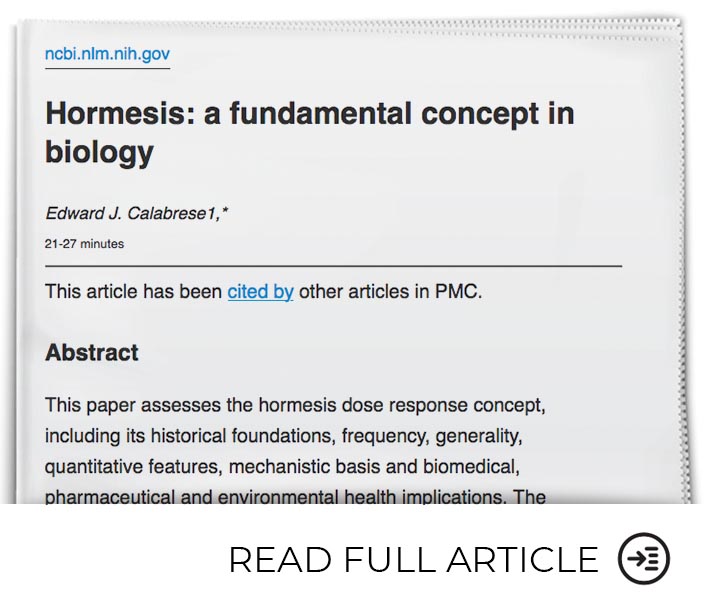
Hormesis is a Fundamental Biological Concept
“The hormetic dose response is independent of biology model (i.e. common from plants to humans), and describes the limits to which integrative endpoints (e.g. cell proliferation, cell migration, growth patterns, tissue repair, aging processes, complex behaviors such as anxiety, learning, memory, and stress, preconditioning responses, and numerous adaptive responses) can be modulated. Thus, the hormesis concept is a fundamental concept in biology with a wide range of biological implications and biomedical applications.”
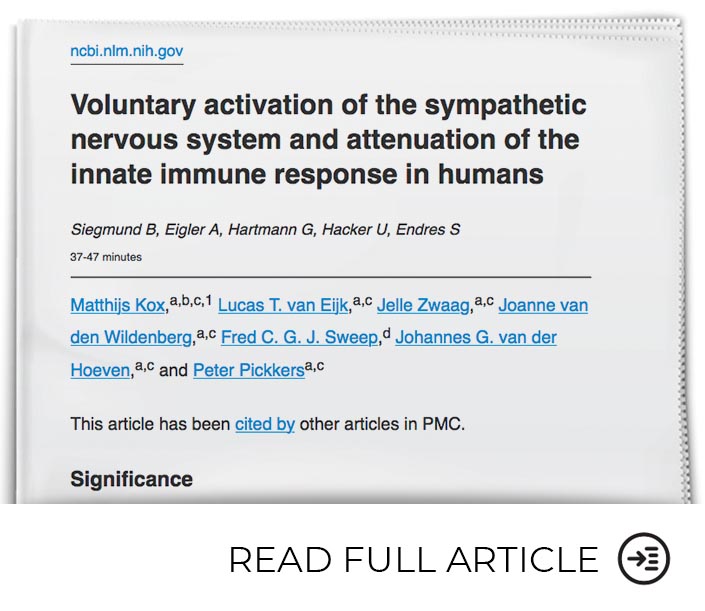
Meditation, Cold Exposure and Focused Breathing Positively Impact Your Nervous System and Immune Response
SJS Comment: This is the research study that brought Wim Hof (The Ice Man) international recognition. Indeed, we are capable of influencing our immune and hormonal responses. This is a landmark study.
“Hitherto, both the autonomic nervous system and innate immune system were regarded as systems that cannot be voluntarily influenced. The present study demonstrates that, through practicing techniques learned in a short-term training program, the sympathetic nervous system and immune system can indeed be voluntarily influenced. This study could have important implications for the treatment of a variety of conditions associated with excessive or persistent inflammation, especially autoimmune diseases.”
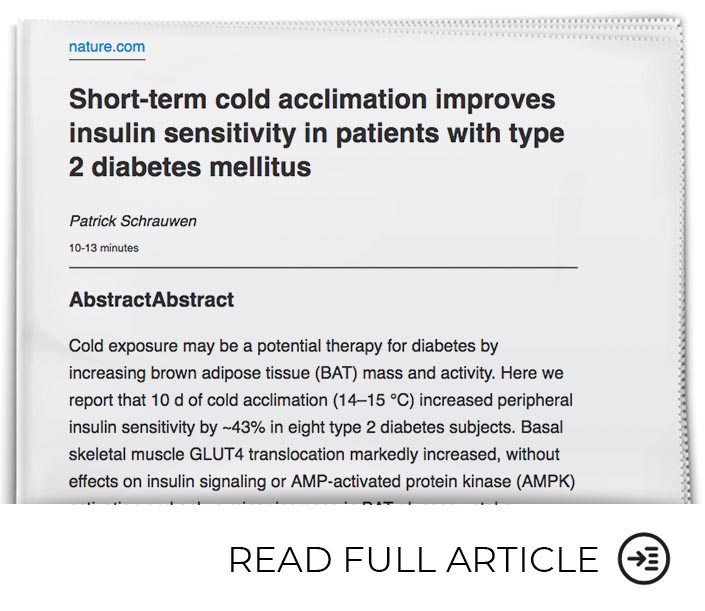
Cold Exposure Improves Insulin Sensitivity and Benefits Blood Sugar Control in Diabetics
SJS Comment. This is a huge increase in insulin sensitivity (the underlying problem of Type 2 Diabetes) in an extremely short period of time.
“Cold exposure may be a potential therapy for diabetes by increasing brown adipose tissue mass and activity. Here we report that 10 days of cold acclimation (14–15 °C) increased peripheral insulin sensitivity by ∼43% in type 2 diabetes subjects.”
https://www.nature.com/articles/nm.3891
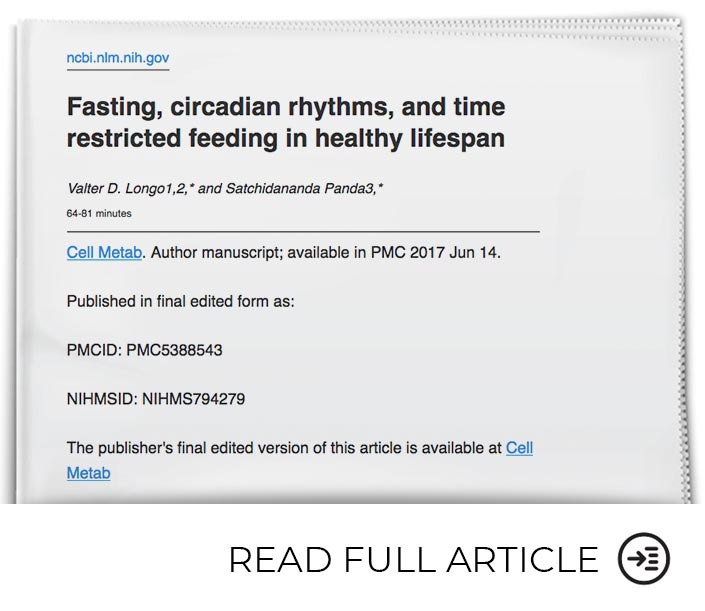
Fasting Positively Impacts Many Disease Risk Factors
“Fasting enables organisms to enter alternative metabolic phases. Restoring a fasting period may be an effective treatment strategy for several chronic diseases… (Fasting regimens) have emerged as potential strategies not just for one disease but for an array of factors that constitutes the foundation for metabolic syndrome, cardiovascular disease, cancer, and possibly neurodegenerative diseases.”

When You Eat May Be More Important Than What You Eat
“The timing of food consumption independent of total caloric intake and macronutrient quality has emerged as a critical factor in maintaining metabolic health. Chronic circadian rhythm disruption increases the risk of metabolic diseases. Conversely, time-restricted feeding sustains robust diurnal rhythms and can alleviate metabolic diseases. These findings offer a new perspective for treating chronic diseases in which metabolic disruption is a hallmark.”
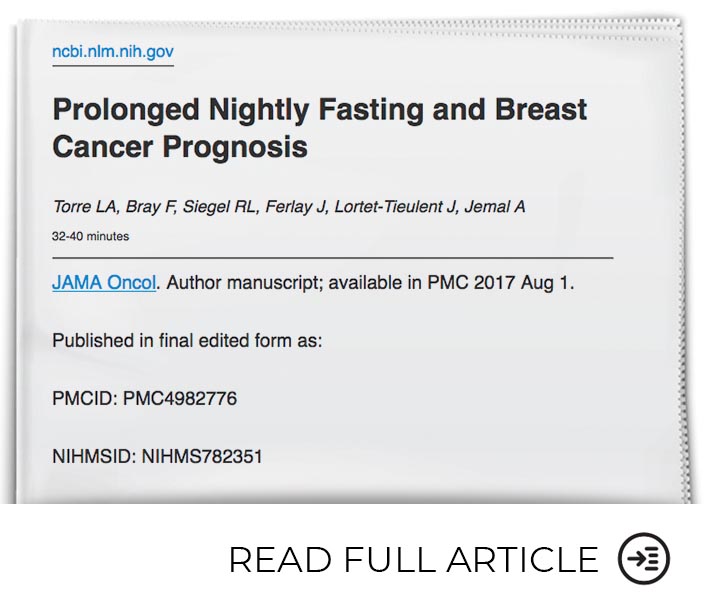
Fasting Has Positive Impacts on Breast Cancer Prognosis
“To our knowledge, no (prior) studies in humans have examined nightly fasting duration and cancer outcomes…Our study introduces a novel dietary intervention strategy and indicates that prolonging the length of the nightly fasting interval could be a simple and feasible strategy to reduce breast cancer recurrence. Findings from this study have broad and significant implications for public health.”
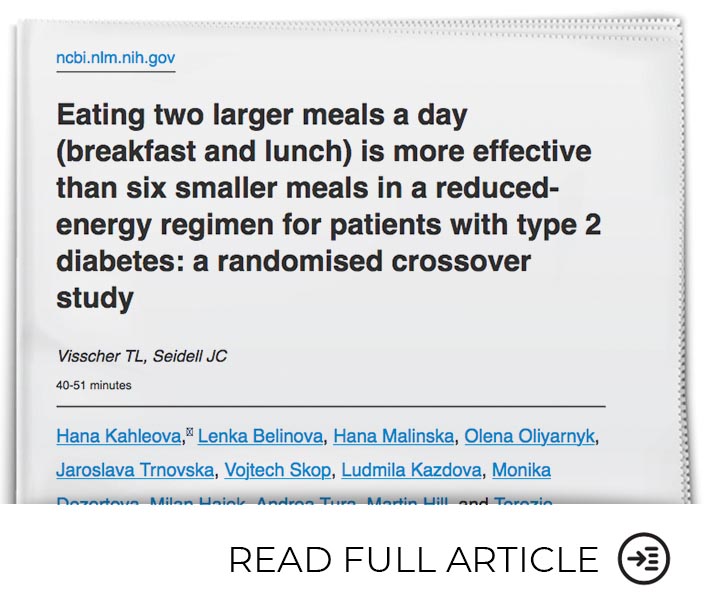
Eating Fewer Meals Reduces Insulin Resistance
“Frequency of meals is an important aspect of nutrition, with profound effects on human health and lifespan. Reduced meal frequency can prevent the development of chronic diseases and extend the lifespan in laboratory animals due to lower oxidative damage and higher stress resistance. Intermittent fasting leads to a prolonged lifespan and positively affects glucose tolerance, insulin sensitivity and incidence of type 2 diabetes
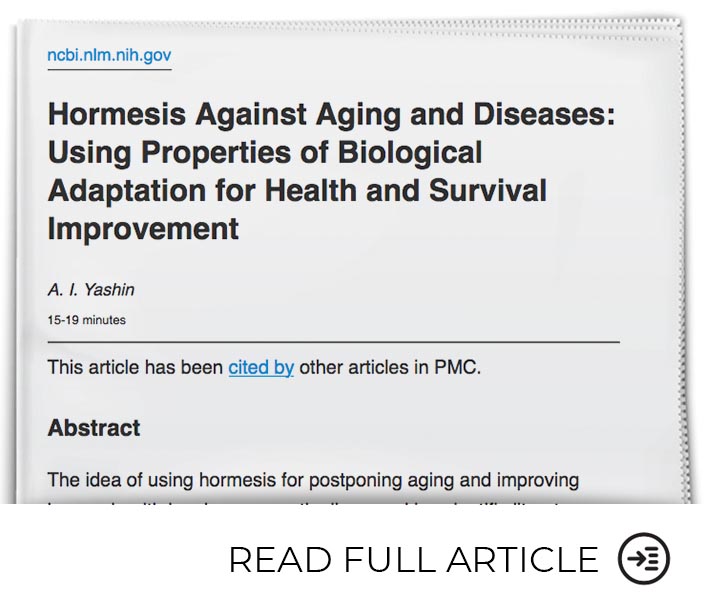
Adapting to Physical and Environmental Challenges Combats Aging and Diseases
“An important feature of such evolutionary development is that certain level of external challenging became a necessary condition of organisms’ “normal” functioning. Such challenging activates defense mechanisms, which provide efficient protection not only from consequences of harmful external disturbances, but also from action of deleterious processes of internal origin e.g. aging, disease development.”

Hormesis Helps Us Cope with Aging and Disease
“The phenomenon termed hormesis describes an evolutionarily conserved process by which a cell or an entire organism can be preconditioned…Growing evidence suggests that hormesis is directly linked to an organism’s (or cell’s) capability to cope with pathological conditions such as aging and age-related diseases.”

Challenging Oneself Intermittently Improves Health
“Humans and their predecessors evolved in environments where they were challenged intermittently…Cells and organ systems acquired and retained molecular signaling and metabolic pathways through which the environmental challenges enhanced the functionality and resilience of the cells and organisms…Within the past 60 years there has been a precipitous diminution of such challenges in modern societies…Signaling pathways that mediate beneficial effects of environmental challenges on health and disease resistance are disengaged, thereby rendering people vulnerable to obesity, diabetes, cardiovascular disease, cancers and neurodegenerative disorders.”
Disclaimer: Users should not rely upon any information presented in the blog without using common sense and the assistance of your licensed health care practitioners.